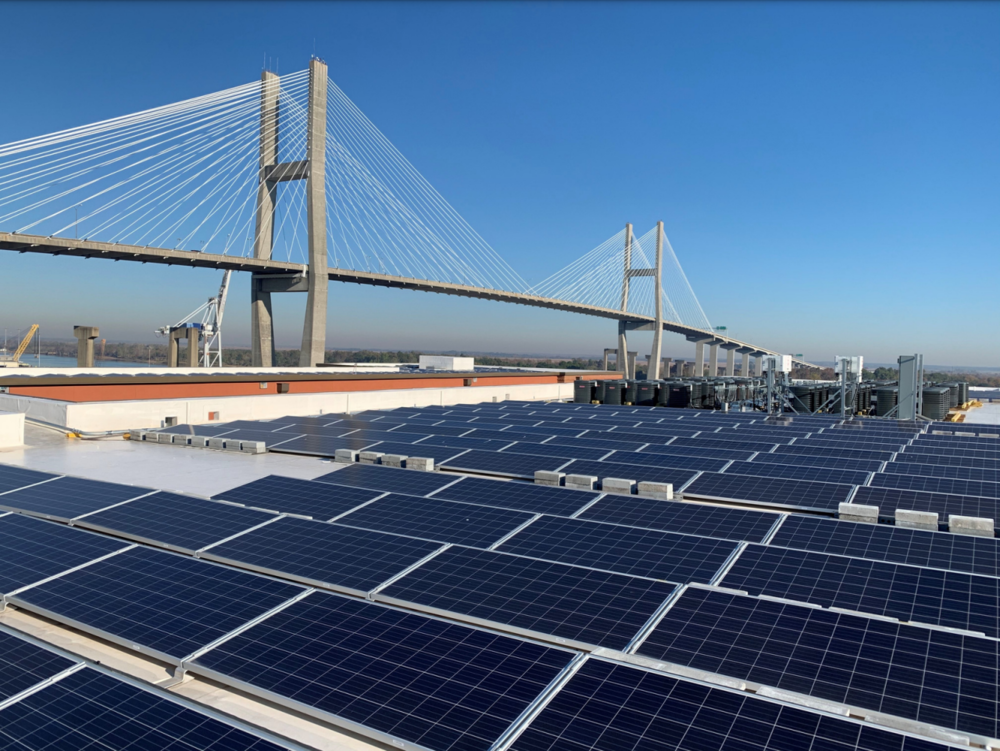
Section Branding
Header Content
Savannah to add new solar panels on 14 city buildings, projected to save $1.4 million over 25 years
Primary Content
LISTEN: Savannah City Council unanimously approved an expansion to its solar energy contract with Atlanta-based Cherry Street Energy. GPB's Benjamin Payne reports.

More than a dozen municipal buildings in Savannah will soon feature solar panel arrays, as City Council on Thursday unanimously approved a $5.75 million contract modification with Atlanta-based Cherry Street Energy to install 1.26 megawatts of new solar capacity across 14 city-owned buildings.
The deal expands the city's contract with the renewable energy firm, which was initially signed in July 2022 to add 1.7 MW of solar capacity at 19 city facilities over 25 years for $6.32 million. Since then, however, installation was scaled down to 16 facilities, as three sites were deemed unfeasible due in part to renovations.
At 1.08 MW, the city's current solar portfolio meets only about 64% of the initial contract's stated capacity. Despite this, City Council agenda notes state that this first phase has yielded “substantial benefits,” including more than $45,000 in energy savings, as well as workforce training for eight unemployed and underemployed Savannah residents.
The new contract expansion will add an estimated $1.4 million in energy savings over 25 years, with each solar array meeting about 37% of its building's energy needs, according to the city.
Shortly before calling a motion to approve the agreement, Savannah Alderman Nick Palumbo said that he was “super honored to keep the ball rolling as we continue to pursue our clean-energy goals,” referring to the city's "100% Savannah" plan, which calls for all electricity consumed in the city — not just by the city government — to be generated from “safe, clean, and renewable” sources by 2035.
However, the plan itself acknowledges that this is an unrealistic target, stating: “Before we go too far, it is important to clarify what ‘100% renewable’ actually means in the context of this goal. For a city like Savannah that has an ongoing relationship with a utility company, it is not possible to serve load with renewable energy 100% of the time unless the utility has a 100% renewable energy mix. Since our utility does not, Savannah has little choice but to continue to receive non-renewable electricity through 2035.”
To make up the difference, the plan calls for the purchase of renewable energy credits, which have come under criticism in recent years, including in a study published in the influential scientific journal Nature, which found that 42% of committed fossil fuel emission reductions will not result in “real-world” mitigation.

